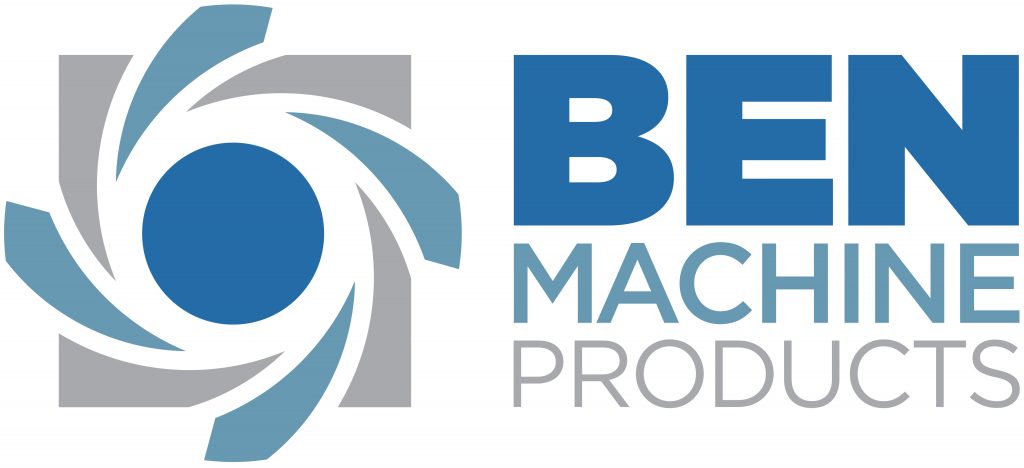
CNC machining companies face an intriguing mix of challenges and opportunities at the crossroads of technology and ethics. CNC machining, a cornerstone of modern manufacturing, controls machine tools with exceptional precision through computer-based systems. This innovation is critical in crafting complex components with accuracy and efficiency.
However, as technology continues to advance, so do the risks. Today, it’s not only about protecting physical designs and parts. The digital side of manufacturing—design files, proprietary processes, and sensitive client data—is increasingly targeted by cyber threats. For companies working in defence, aerospace, and other high-stakes industries, CNC cybersecurity and CNC machining intellectual property protection aren’t optional extras; they are essential to survival and competitiveness.
This article explores why safeguarding intellectual property is so vital in CNC machining, the growing role of cybersecurity, and how industry standards like Cybersecurity Maturity Model Certification (CMMC) and the Canadian Program for Cyber Security Certification (CPCSC) shape compliance requirements. We’ll also highlight how Ben Machine stays ahead of the curve, ensuring trust and providing security features for every client.
CNC Machining and Intellectual Property
Intellectual property (IP) represents the lifeblood of CNC machining businesses. It encompasses the unique designs, processes, and proprietary techniques that companies develop to maintain their competitiveness. Whether it’s a specialized aerospace component or a custom defence part, these designs reflect years of engineering expertise and significant financial investment.
A pressing issue in the industry is the unauthorized copying of proprietary parts or the leakage of sensitive design files. Such acts don’t just violate IP laws; they erode a company’s competitive edge and undermine innovation. When a design is stolen or misused, it can lead to lost contracts, reputational damage, and a decline in client trust.
The consequences go beyond reputation. Intellectual property theft can trigger legal disputes, cause financial setbacks, and, in extreme cases, jeopardize the very viability of a business. For companies operating in sensitive markets, such as defence and medical devices, the loss of proprietary data can have national security implications as well.
For these reasons, CNC machining companies must exercise due diligence in protecting their intellectual assets while also respecting the IP rights of others. This dual responsibility—to safeguard and to uphold—reinforces the ethical foundation of the industry.
The Intersection of CNC Machining and Cybersecurity
In today’s connected manufacturing environment, protecting intellectual property goes hand in hand with strong cybersecurity practices. Every CAD drawing, CNC program, and client specification is a digital asset to be safeguarded from unauthorized access or malicious attacks.
Why Cybersecurity Matters in CNC Machining
Cybersecurity ensures that sensitive design files, trade secrets, and proprietary processes remain confidential and uncompromised. A breach in security could allow competitors or malicious actors to steal valuable designs or disrupt production schedules. For industries like defence or aerospace, the stakes are even higher—national security and public safety may be at risk.
Key Cybersecurity Risks
Some of the most common risks CNC machining businesses face include:
- Unauthorized access to design files often occurs through weak password management.
- Ransomware attacks, where malicious software locks access to systems until a ransom is paid.
- Phishing and social engineering attempts that target employees to gain access credentials.
- Insider threats, whether intentional or accidental, occur when employees mishandle sensitive files or share them improperly.
Each of these risks can lead to downtime, financial losses, and compromised intellectual property.
Linking Cybersecurity to IP Protection
Ultimately, cybersecurity is more than just IT hygiene. It’s a core component of protecting intellectual property in CNC machining. Without strong cybersecurity, even the most carefully crafted part designs can fall into the wrong hands.
The CMMC and the Canadian CPCSC
The U.S. Department of Defense (DoD) has taken a significant step in formalizing cybersecurity standards for manufacturers through the Cybersecurity Maturity Model Certification (CMMC).
What is the CMMC?
The CMMC establishes a tiered model of cybersecurity practices that organizations must meet if they wish to work with the DoD. At its core, it ensures that contractors handling sensitive but unclassified information can protect it against cyber threats.
The certification encompasses approximately 114 specific requirements, ranging from technical measures—such as dual-factor authentication—to organizational policies, including employee training. These requirements create a consistent and verifiable standard across the supply chain, ensuring that sensitive defence-related information is never at risk.
The Canadian CPCSC
In Canada, a similar initiative is underway: the Canadian Program for Cybersecurity Certification (CPCSC). This program aligns closely with the U.S. CMMC framework. The goal is to provide Canadian companies with a certification path that meets the same rigorous standards, ensuring that cross-border collaboration between Canadian and American contractors can proceed smoothly and securely.
Reciprocity of Standards
Perhaps the most crucial feature of the CPCSC is its intended reciprocity with the CMMC. This means that companies certified under one program will be recognized by the other, reducing redundancy and enabling more efficient cross-border operations. For Canadian CNC machining companies serving the defence sector, this alignment is critical to maintaining competitiveness and compliance.
By adopting these certifications, both the U.S. and Canadian governments are making it clear: cybersecurity is no longer optional. It is a fundamental requirement for companies that want to remain trusted suppliers in sensitive industries.
Cybersecurity Measures for CNC Machining Compliance
Meeting CMMC or CPCSC certification requires a wide range of cybersecurity practices. These aren’t theoretical requirements—they are concrete, actionable measures that CNC machining companies must adopt to protect intellectual property and sensitive client data.
Key Measures Include:
- Dual-Factor Authentication (DFA): Ensures that access to sensitive files requires more than just a password, adding an extra layer of protection.
- Encrypted VPN Tunnels: Secure communication channels for remote work and file transfers, making it much harder for cybercriminals to intercept data.
- Regular Security Audits and Vulnerability Assessments: Identifying weak points before someone can exploit them.
- Employee Training: Teaching staff how to recognize phishing attempts and social engineering attacks, which remain some of the most effective ways hackers gain access.
The Requirements
CMMC and CPCSC each outline requirements that cover everything from technical safeguards to procedural practices. These requirements are not just bureaucratic hurdles—each plays a role in building a robust defence against threats. For instance:
- Access control standards limit who can see sensitive design files.
- Incident response requirements ensure that companies can quickly address and recover from a breach.
- Regular compliance checks guarantee that standards are maintained, not just achieved once.
By implementing these measures, CNC machining companies ensure that client designs remain secure, regulatory requirements are met, and business continuity is protected.
NIST Cybersecurity Standards: NIST 800-171 and NIST 800-172
At the foundation of both the CMMC and CPCSC are the standards developed by the National Institute of Standards and Technology (NIST). Specifically, two key publications guide the process: NIST 800-171 and NIST 800-172.
What These Standards Provide
- NIST 800-171 outlines requirements for protecting controlled unclassified information (CUI) in non-federal systems and organizations.
- NIST 800-172 builds on these practices, refining controls for even greater resilience against advanced cyber threats.
Why They Matter for CNC Machining
For companies in CNC machining, these standards act as the blueprint for secure operations. They guide how to store design files, how to restrict access, and how to monitor systems for vulnerabilities.
By adhering to NIST standards, companies not only meet CMMC and CPCSC requirements but also establish a culture of security that extends to every aspect of their operations. For clients, this means confidence that their sensitive designs and intellectual property are handled with the utmost care.
Ben Machine’s Approach to Ethical CNC Machining and Cybersecurity
At Ben Machine, ethical CNC machining isn’t just a slogan—it’s a commitment. Protecting intellectual property and maintaining the highest cybersecurity standards are woven into every aspect of our operations.
Practical Steps We Take
- Alignment with CMMC and CPCSC: Ben Machine is fully aligned with current and upcoming certification requirements, ensuring readiness for both U.S. and Canadian standards.
- Advanced Cybersecurity Measures: From dual-factor authentication to encrypted VPN tunnels, we have implemented industry-leading safeguards across all systems.
- Regular Audits and Assessments: At Ben Machine, we continuously evaluate our cybersecurity practices to ensure ongoing compliance and improvement.
- Employee Training: We train every team member to recognize and respond to cyber threats, ensuring that security awareness is part of our culture.
Building Client Trust
For our clients, this means peace of mind. They can trust that their designs and proprietary information are safe, not only from competitors but also from increasingly sophisticated cyberattacks. By setting a high bar for cybersecurity and IP protection, Ben Machine demonstrates a forward-looking approach that reflects the direction of the entire industry.
Conclusion
In CNC machining, protecting intellectual property and maintaining robust cybersecurity are inextricably linked. As technology advances, so do the risks—from IP theft to cyberattacks that can disrupt entire supply chains. Industry standards, such as the CMMC and CPCSC, grounded in NIST frameworks, provide a clear path forward for companies that want to remain competitive and trusted partners.
Cybersecurity isn’t optional. It’s a fundamental part of doing business in modern CNC machining. By adopting best practices, pursuing certification, and building a culture of security, companies not only protect themselves but also strengthen client relationships and industry reputation.
At Ben Machine, we take this responsibility seriously. Our proactive stance ensures that clients can trust us with their most valuable asset—their intellectual property. For buyers and design engineers, that trust is the foundation of a partnership built to last.


